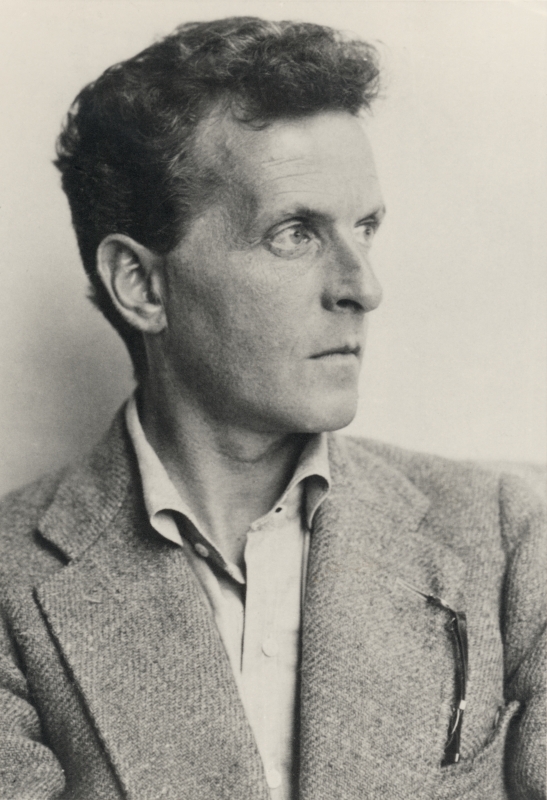Ludwig Wittgenstein nejznámější citáty
Ludwig Wittgenstein citáty a výroky
„Řešení problému života pozorujeme na tom, že tento problém zmizí.“
Tractatus Logico-Philosophicus
Zdroj: Konrad Paul Liessmann: Teorie nevzdělanosti, Academia 2009
„Člověk se musí probudit k údivu – a národy možná také. Věda je způsob, jak je zase poslat spát.“
Wittgenstein Culture and value, str. 5.
Ludwig Wittgenstein: Citáty anglicky
“Every explanation is after all an hypothesis.”
Zdroj: 1930s-1951, Philosophical Occasions 1912-1951 (1993), Ch. 7 : Remarks on Frazer's Golden Bough, p. 123
Zdroj: Culture and Value (1980), p. 75e
Or the direction of your life.
Zdroj: Culture and Value (1980), p. 53e
In reaction to statements by Maurice O'Connor Drury who expressed disapproval of depictions of an ancient Egyptian god with an erect phallus, in "Conversations with Wittgenstein" as quoted in Leading a Human Life: Wittgenstein, Intentionality, and Romanticism (1997) by Richard Thomas Eldridge, p. 130
Attributed from posthumous publications
“In philosophy the race is to the one who can run slowest—the one who crosses the finish line last.”
In Rennen der Philosophie gewinnt, wer am langsamsten laufen kann. Oder: der, der das Ziel zuletzt erreicht.
Zdroj: Culture and Value (1980), p. 40e
“A new word is like a fresh seed sown on the ground of the discussion.”
Zdroj: Culture and Value (1980), p. 2e
Original German: Man könnte den ganzen Sinn des Buches etwa in die Worte fassen: Was sich überhaupt sagen lässt, lässt sich klar sagen; und wovon man nicht reden kann, darüber muss man schweigen.
Introduction
1920s, Tractatus Logico-Philosophicus (1922)
“My difficulty is only an — enormous — difficulty of expression.”
Journal entry (8 March 1915) p. 40
1910s, Notebooks 1914-1916
“But ordinary language is all right.”
Zdroj: 1930s-1951, The Blue Book (c. 1931–1935; published 1965), p. 28
“Is it just I who cannot found a school, or can a philosopher never do so?”
Zdroj: Culture and Value (1980), p. 69e
“The ceremonial (hot or cold) as opposed to the haphazard (lukewarm) characterizes piety.”
Zdroj: 1930s-1951, Philosophical Occasions 1912-1951 (1993), Ch. 7 : Remarks on Frazer's Golden Bough, p. 127
Journal entry (8 July 1916), p. 74e
1910s, Notebooks 1914-1916
Zdroj: 1930s-1951, Philosophical Occasions 1912-1951 (1993), Ch. 7 : Remarks on Frazer's Golden Bough, p. 131
“What has to be accepted, the given, is — so one could say — forms of life.”
Pt II, p. 226 of the 1968 English edition
Philosophical Investigations (1953)
“The thought is the significant proposition.”
4
Original German: Der Gedanke ist der sinnvolle Satz.
1920s, Tractatus Logico-Philosophicus (1922)
3.0321
Original German: Wohl können wir einen Sachverhalt räumlich darstellen, welcher den Gesetzen der Physik, aber keinen, der den Gesetzen der Geometrie zuwiderliefe.
1920s, Tractatus Logico-Philosophicus (1922)
Zdroj: Culture and Value (1980), p. 86e
Zdroj: Culture and Value (1980), p. 86e
As quoted in Wittgenstein and the Philosophy of Information (2008) edited by Alois Pichler and Herbert Hrachovec, p. 140
Attributed from posthumous publications
Wittgenstein in conversation with Maurice O'Connor Drury, cited in Rush Rhees (eds.) Recollections of Wittgenstein: Hermine Wittgenstein--Fania Pascal--F.R. Leavis--John King--M. O'C. Drury, Oxford University Press, 1984; p. xvi, and p. 168.
Attributed from posthumous publications
Journal entry (24 July 1916), p. 77e
1910s, Notebooks 1914-1916
“One of the most difficult of the philosopher's tasks is to find out where the shoe pinches.”
Zdroj: 1910s, Notebooks 1914-1916, p. 61
“An entire mythology is stored within our language.”
Zdroj: 1930s-1951, Philosophical Occasions 1912-1951 (1993), Ch. 7 : Remarks on Frazer's Golden Bough, p. 133
“The aim of philosophy is to erect a wall at the point where language stops anyway.”
Zdroj: 1930s-1951, Philosophical Occasions 1912-1951 (1993), Ch. 9 : Philosophy, p. 187
“The way you use the word "God" does not show whom you mean — but, rather, what you mean.”
Zdroj: Culture and Value (1980), p. 50e
“Uttering a word is like striking a note on the keyboard of the imagination.”
§ 6
Philosophical Investigations (1953)

